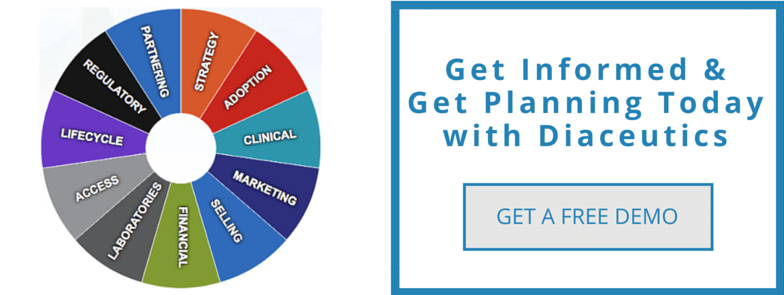The field of companion diagnostic treatments is still an emerging one and with all things new, preconceived ideas about novel therapeutic approaches and its associated technology can hinder natural acceptance and progress. In addition, a common myth concerning the launch of companion diagnostics has begun to surface.
Myth: The regulatory hurdles and expense of implementing a new companion diagnostic are too great compared with the return on investment.
Reality: In the dynamic field of personalized medicine there is an ever-strengthening knowledge base. As new treatments are utilized in a primary care population, their efficacy and safety become better understood. Savings can be generated for all stakeholders and regulators are supporting speedier reviews of therapies submitted with companion diagnostics. However, trial and error prescribing predicated on generalized knowledge is not keeping step with the demand for improved outcomes and reduced costs.
The need for personalized medicine, powered by a deeper understanding of the patient’s condition and genetic profile, is motivating regulators to work more closely with companies who seek to provide pathways to improved patient care. The rising cost of health care, however, is actively motivating the government as the primary payer to find ways to curtail the expense.
It is clear, even in the short time that genetic data has been readily available, that personalized medicine allows health care providers to more accurately diagnose and treat conditions. The savings (financial and personal) inherent with this improved accuracy are of value to both patient and payer. In fact, one study identified that 17,000 strokes in the US and 43,000 visits to ER could be prevented if genetic testing were used to better tailor the prescribed dose of Warfarin. This kind of data shows the great need for companion diagnostic treatments that can improve the accuracy of current therapies.
The value offered by these treatments has caused the FDA to look favourably upon requests for reviews of new targeted therapies. The growing list of exceptions to the Humanitarian Use Device Designations reflects the FDA’s flexibility and desire to partner with companies that can make companion diagnostics available.
It is true that the cost of developing and implementing these diagnostic tools can be high. However, the additional revenue generated through investments in this field can make the prospect more attractive. Old drugs previously pulled from the market, or that failed in clinical trials, can be reviewed for specific use based on diagnostic data. Personalized medicine narrows the patient profile and yields a greater understanding of the efficacy and safety implications of a therapy prior to its use. This reduces legal liability by improving outcomes and decreasing the chance of adverse reactions. Lawsuits can be costly for companies both financially and in terms of public opinion so the potential savings here, generated by personalized medicine, can greatly improve the bottom line.
The use of companion diagnostic treatments is an exciting field of medical development. The potential value for patients is safer treatment with improved outcomes. The focus of medicine has always been the welfare of the individual patient but with medicine becoming an increasing burden on taxpayers, reducing the cost of that quality care is now of prime importance. Companion diagnostic treatments offer an innovative way to achieve a better quality of care at a reduced price. Companies helping to further this area of medical science are indeed on the cutting edge of this promising technology and over time will help to dispel the myths around personalized medicine.
Learn more about what it takes to plan a successful launch: https://www.diaceutics.com/dxlaunchplanner/

